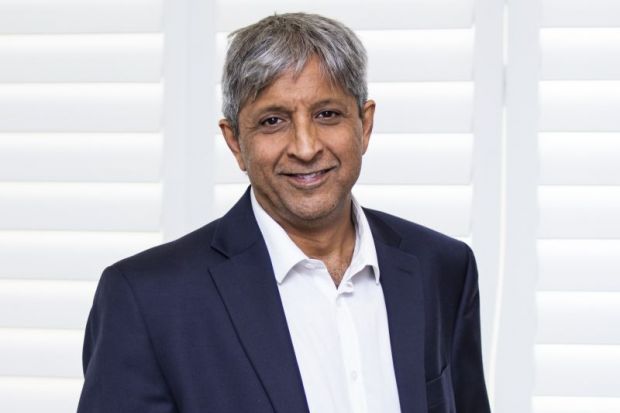UK universities that have not called for a ceasefire in the Israel-Gaza war must explain how that is consistent with their foundational democratic values, according to a sector leader.
Adam Habib, vice-chancellor of SOAS University of London, said many universities, along with umbrella body Universities UK (UUK), spoke out publicly during the Black Lives Matter (BLM) movement and Russia’s invasion of Ukraine – but then “immediately invoked institutional neutrality” when it came to Israel’s attacks on civilians in Gaza.
Speaking during a conference on academic freedom at the University of Cambridge, he said: “For many this has created the perception of deep, deep hypocrisy and frankly racism amongst people in universities in the UK, and in universities in the global south.”
SOAS called for an immediate end to attacks on university students, staff and buildings late last year, as did the University of Glasgow. However, they remain the only two institutions to have done so, according to Professor Habib.
“In a country of 160 public universities, in a war where 32,000 people have died in the space of four months, in a context where 16,000 children have died, only two universities – all of whom profess to the liberal values of a democracy – have come out in favour of a ceasefire,” he said.
Professor Habib said his views ran contrary to the mainstream view of other vice-chancellors and that of Arif Ahmed, director for freedom of speech and academic freedom of the Office for Students, that universities are neutral.
Their argument is that institutional neutrality is the gateway to intellectual plurality, he said. But the former vice-chancellor of the University of the Witwatersrand said he did not buy this view, arguing that these leaders have forgotten the implicit values enshrined in their universities.
Although it is “symbolic”, he said SOAS supports a ceasefire because it is committed to liberal values, committed to the values of social justice, and committed to certain rights.
“There’s a very clear right in the genocide convention, in the declaration of human rights, in the rules of law that civilians should not be targeted in attacks.
“That value, that right…is being violated and in that context, you have to call for a ceasefire.”
Delivering the keynote address at the conference organised by the Research for Equitable Access and Learning Centre and the Centre for Lebanese Studies, Professor Habib questioned whether those that have not called for a ceasefire would have done the same in relation to Nazi Germany or apartheid-era South Africa.
He said he was not advocating for all UK universities to call for a ceasefire, but said that they must publicly justify how they square their societal values with the decision not to.
“If you say you made a mistake before then admit it publicly…not quietly to me as some have done, so you can be held publicly accountable,” he said.
Register to continue
Why register?
- Registration is free and only takes a moment
- Once registered, you can read 3 articles a month
- Sign up for our newsletter
Subscribe
Or subscribe for unlimited access to:
- Unlimited access to news, views, insights & reviews
- Digital editions
- Digital access to THE’s university and college rankings analysis
Already registered or a current subscriber? Login








